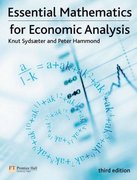Question
On the first of January 1990, the United Company issued (A) convertible bonds with a nominal value of $ 1 per bond and a coupon
On the first of January 1990, the United Company issued (A) convertible bonds with a nominal value of $ 1 per bond and a coupon of 8%. The prevailing interest rate for ordinary bonds of the same class was 13%, and these bonds matured after 3 years.
The issue contract included The following two conditions:
First: The bond is called after two years from the date of its issuance at a price equivalent to 125% of its nominal value
Second: The bond can be converted into ordinary shares at a share price of $ 42 (par value of dollars) during a period of three years from the date of issuance
assuming that an investor holds 600 bonds On 9/3/10, the company's ordinary share price increased to $ 55, so it transferred its bonds to shares.
Determine the value of the capital gains that it achieves, and determine the profits achieved by the issuing company.
Assuming that the date of the share price increase was 10/3/120 and I was a financial analyst.
Does the company advise to call its bonds for amortization?
Suppose that the share price fell one year after the issuance to $ 20, and the rate of return on investment at that time was 11% among the safety benefits that the convertible bond provides to its holder.
Step by Step Solution
There are 3 Steps involved in it
Step: 1

Get Instant Access to Expert-Tailored Solutions
See step-by-step solutions with expert insights and AI powered tools for academic success
Step: 2

Step: 3

Ace Your Homework with AI
Get the answers you need in no time with our AI-driven, step-by-step assistance
Get Started


